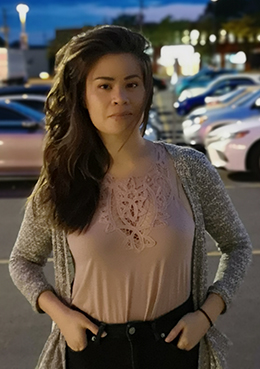This piece was reprinted by OpEd News with permission or license. It may not be reproduced in any form without permission or license from the source.
As Callicles made the point, what use is philosophy as a "career"? What contribution to the world of grown men can philosophy possibly make? It is also Callicles' conviction that justice is the rule of the superior over the inferior, the strong over the weak. Though in some ways our society is different from that of Callicles in ancient Athens, in this conception, we are not very unlike each other.
In our world, money and influence are just as much ascribed to what constitutes power and "what makes the world go round" as it did during Callicles time.
"But when I hear some small creature carefully articulating its words, I am offended; the sound is disagreeable, and has to my ears the twang of slavery."
Interestingly, what Callicles considers noble in a child's development is the very thing that he associates with an abiding slave in later years. The reason for this is because Callicles equates a "real man" to be one that invokes power. A child plays in philosophy as exercises for the mind but is expected to throw away this form of play when they reach adulthood and use such lessons purely in the pursuit of power. In the eyes of Callicles, anyone who does not pursue power is weak and effeminate and partakes more in slavery than in freedom; for it is the most powerful who are the most free and the least powerful who are the most enslaved.
But what if money and influence were not the ultimate culmination of power? What if true power resides somewhere else? Wouldn't we also have to conclude that wherever this true power resides would also have to be the determining governing force of the world we live in and what ultimately shapes our very own character?
Out of the Unchartered, Unthinkable Dark We CameThen came Love, bearing in her hand
The torch that is the light unto my feet,
And softly spoke Love: "Hast thou
Entered into the treasures of darkness?
Has thou entered into the treasures of the night ?
- A Chant of Darkness (an excerpt of the poem by Helen Keller)
To answer such a question we will look at one of the unlikeliest of individuals, or so you may think, Helen Keller.
Helen Keller was born June 27, 1880, in Tuscumbia, in a little town of northern Alabama. About nineteen months later, in the dreary month of February, Helen caught an acute congestion of the stomach and brain. Helen describes it in her autobiography 'The Story of My Life' as such:
The doctor thought I could not live. Early one morning, however, the fever left me as suddenly and mysteriously as it had come. There was great rejoicing in the family in that morning, but no one, not even the doctor, knew that I should never see or hear again.
I fancy I still have confused recollections of that illness. I especially remember the tenderness with which my mother tried to soothe me in my waking hours of fret and pain, and the agony and bewilderment with which I awoke after a tossing half sleep, and turned my eyes, so dry and hot, to the wall, away from the once loved light, yet came to me dim and yet more dim each day. But, except for these fleeting memories, it all seems very unreal, like a nightmare. Gradually I got used to the silence and darkness that surrounded me and forgot that it had ever been different, until she came - my teacher - who was to set my spirit free. But during my first nineteen months of my life I had caught glimpses of broad, green fields, luminous sky, trees and flowers which the darkness that followed could not wholly blow out. If we have once seen, "the day is ours, and what the day has shown."
For about five and half years Helen grew up in complete darkness and silence without any means to gather information of her surroundings or means of communication, other than basics wants. She lived moment to moment, her world was shaped purely by a whirlwind of raw emotion from euphoric pleasure when she got what she wanted to a fury of rage in the form of wild screams and kicks when she didn't.
Helen describes one of these moments of rage that nearly led to the death of her younger sister:
once I discovered my little sister sleeping peacefully in the cradle [Helen's baby doll's cradle]. At this presumption on the part of one to whom as yet no tie of love bound me I grew angry. I rushed upon the cradle and over- turned it, and the baby might have been killed had my mother not caught her as she fell. Thus it is that when we walk in the valley of twofold solitude we know little of the tender affections that grow out of endearing words and actions and companionship. But afterward, when I was restored to my human heritage, Mildred and I grew into each other's hearts, so that we were content to go hand- in-hand wherever caprice led us, although she could not understand my finger language, nor I her childish prattle.
Helen lived this way, in an almost feral condition until she met her teacher, Anne Sullivan, who was sent from the Perkins Institute for the Blind. Luckily, Helen's mother had heard of the institute from Charles Dicken's 'American Notes' which describes Laura Bridgman, the first documented deaf-blind person to have ever been educated, and this was accomplished at Perkins.
Next Page 1 | 2 | 3 | 4 | 5 | 6
(Note: You can view every article as one long page if you sign up as an Advocate Member, or higher).





